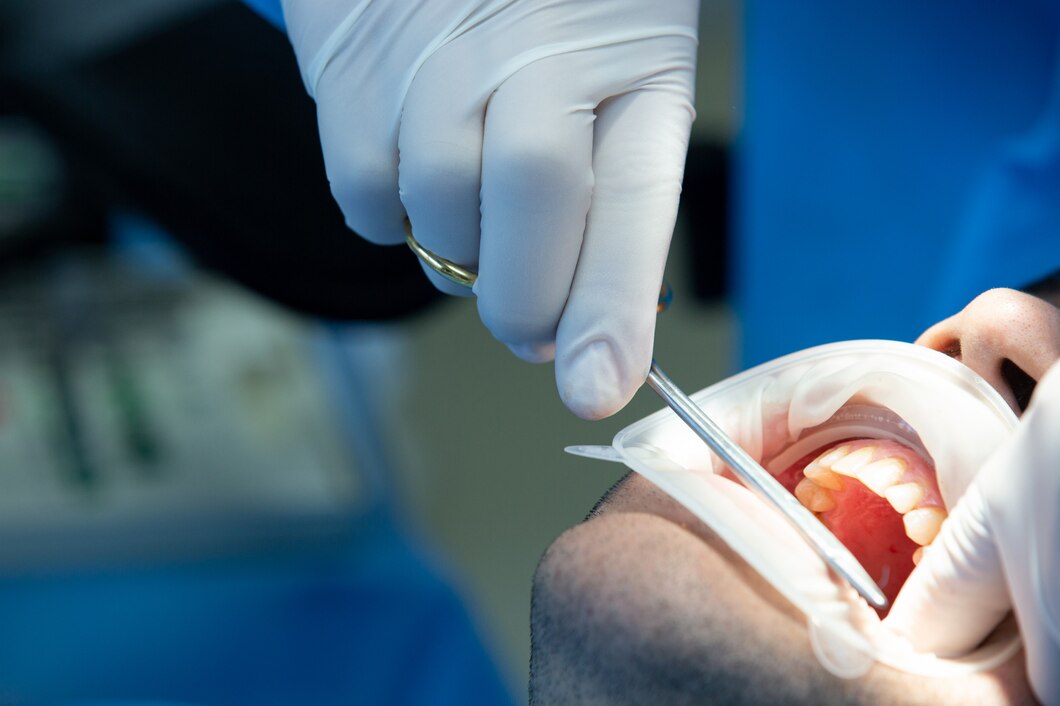Dental implants have revolutionized modern dentistry and provide a permanent and aesthetic solution for missing teeth. They restore functions, and aesthetics take time to adjust to eating and implant. Preparing oneself for what to expect and working to modify one’s diet may assist in the transition. Therefore, this article outlines advice about dental implant eating from recovery back to a full diet.
Post-Surgery Diet
The first few days after an operation are vital for healing. During these days, everything would be inclined to feel sore and sensitive, and utmost care should be taken not to disturb the implant site. Here is what you should keep in mind with regards to this healing phase:
– Swelling and Bruising: Your gums will be swollen and very sore. Chewing may even be a nightmare because it would just hurt.
– Soft Diet: This is very important, particularly in this phase, when there is minimum stress on your implants, with major healing advantages.
– Avoid Hot and Spicy Foods: Hot foods may irritate while spicy foods would hurt.
Foods that can be eaten in the first few days are:
- Smoothies (without seeds or hard chunks)
- Mashed potatoes
- Yogurt
- Applesauce
- Scrambled eggs
- Blended soups
Hot Tip: Drink lots of fluid. The best choices for drinks are lukewarm or cool. Do not use straws, as sucking could disrupt healing.
The Next Few Weeks: Transitioning to Solid Foods
In your healing, solid food assimilation can start to be gradual. However, some caution should be exercised.
- Chew Very Gently: Chew on the opposite side of the mouth to the implant site.
- Avoid Hard, Crunchy, or Sticky Foods: All will put stress on the implant and delay its healing.
- Concentrate on Nutrient-Dense Foods: Your body requires all vitamins and minerals for the formation of bone and healing of tissues.
Some foods which are encouraged at this stage are really:
- Soft-cooked vegetables
- Oatmeal
- Soft pasta
- Ground meats
- Soft cheeses
- Steamed fish.
Long-Term Eating with Dental Implants
Long-term eating with implants has a personality that is some stable and comfort-oriented. Implant-supported eating gives the freedom to consume all sorts of food without being wary of conventional dentures. Since implants are anchored securely in the jaw bone. Moreover, they can easily withstand certain amount of pressure without compromising future bone health. Over time, maintaining good oral hygiene and regular dental check-ups will help extend the longevity of dental implants, allowing patients to continue eating their favourite foods with confidence.
About normal diet will commence 3-6 months after complete implant integration into the jaw bone; apart from that, good dietary habits will extend the life of the implants.
Few foods to consider include:
- Lean proteins: Chicken, turkey, fish, and tofu.
- Dairy products: Calcium sources are certainly essential for strong bones and teeth including cheese, milk, and yoghurt.
- Fresh fruits and vegetables: Apples, carrots (in the cooked form), as well as leafy greens, as it support and beneficial for overall health.
- Whole grains: You should take brown rice, quinoa, as well as whole wheat bread are rich in fibre and nutrients.
Foods to Avoid or Limit:
- Very hard foods: Nuts, ice, and hard candies will exert tremendous pressure on the implants.
- Sticky or chewy foods: These foods, such as caramel or taffy, pull on your dental restorations.
- Acidic foods and drinks: Citrus fruits and juices, soft drinks, and also the vinegar-based foods can erode enamel and irritate gum tissue.
- Super sugary foods: They might not decay the implants, but do cause gum infections which then affect the tissues surrounding the implants.
Tips for Eating Comfortably with Dental Implants:
- Chew Symmetrically: Distribute chewing equally to both sides of the mouth when eating to avoid putting so much pressure on one side of the mouth.
- Use Good-Purpose Utensils: Cut food into small and digestible forms that allow easier chewing.
- Staying Hydrated: Water will be useful in keeping food particle deposition to a minimum and maintain general health.
- Good Oral Hygiene: Brushing and flossing will help keep infection at bay around implants.
- Regular Dentist Visits: For monitoring implant and surrounding conditions.
It’s a journey with implants, and gradually, with some degree of patience and adjustment in diet choices, the old activities will be regained and new memories will be created admiring your favorite foods. Proper care for the implants with an understanding of healing dietary choices will protect the implants while keeping you in good oral health. For any pain, discomfort, or complications, the best bet is to reach out to your dentist.
The good fight can be with confidence, just like eating with any other natural tooth, provided minor adjustments are made along the way.




